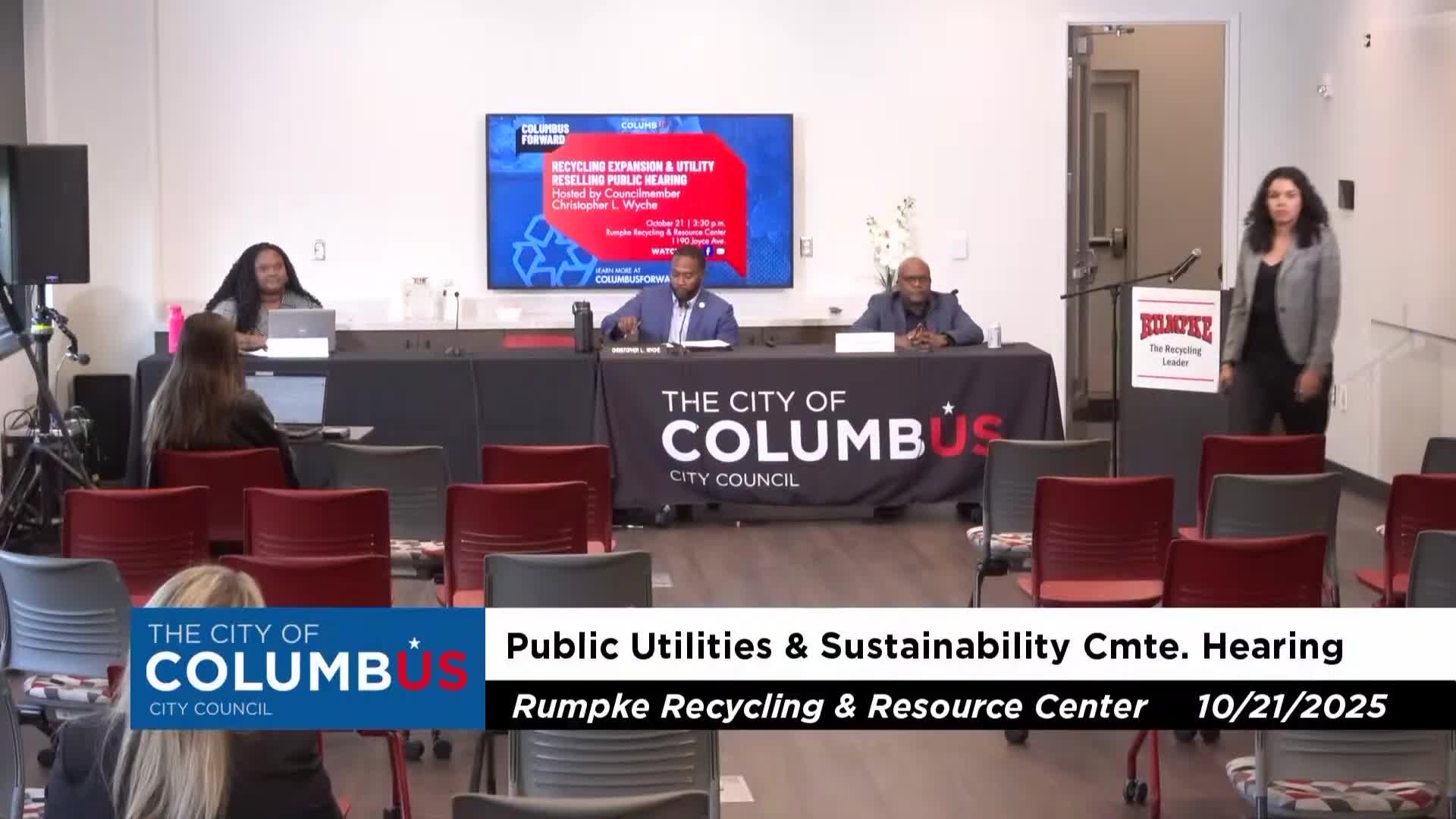Columbus outlines phase‑1 plan for recycling expansion after multifamily pilot; city to start with municipal facilities
Get AI-powered insights, summaries, and transcripts
Subscribe
Summary
City staff reviewed a 2021 multifamily recycling pilot and outlined a phased, 5–7 year plan to expand recycling access citywide. Phase 1 will focus on implementing recycling in city facilities, staff training, and continued stakeholder engagement before expanding to private multifamily properties.
Columbus City Council committee members heard a presentation on the city's multifamily recycling pilot and a proposed phased plan to expand recycling access across the city.
Desu (Dessue) Oshodi, refuse operations coordinator in the Department of Public Service, reviewed a six‑month 2021 pilot that targeted about 10,000 multifamily units through 38 participating complexes and used front‑load containers, cameras, and resident education to measure diversion and contamination. "Year to date, [we] collected about 1,200 tons of recyclable materials from 2022 up until last week," Oshodi said, summarizing program results and operational lessons.
Why it matters: The city aims to reduce landfill demand and increase diversion to meet climate and waste‑reduction goals. City staff said roughly 76% of material currently going to the Franklin County landfill is recyclable, and the region has a circular economy that can use recycled materials for local manufacturing.
Pilot details and findings: The multifamily pilot targeted complexes served by compactor accounts, using a combination of recycling signage, resident education (magnets, bags, social media), a dedicated recycling truck to reduce contamination, and camera monitoring to time collections and target outreach. The department reported 38 compactor complexes represented about 24,000 dwelling units in the canvass; the pilot specifically engaged complexes covering approximately 10,000 units.
Partnerships and capacity: The department coordinated with Keep Columbus Beautiful, Swayco, and The Recycling Partnership on education and outreach. Jake Heffron, municipal and public‑sector representative for Rumpke Waste and Recycling, said Rumpke’s new processing facility aims to accommodate growth. "We have the capacity to process upwards of 250,000 tons of material," Heffron said, noting the new Rumpke Resource and Recycling Center's technology and public education center.
Phase 1 and next steps: City staff described a phased plan to roll out recycling expansion over 5–7 years. Phase 1 focuses on implementing recycling in all city facilities with regular human activity (recreation centers, municipal buildings, water treatment plants), staff training on "recycling the right way," and stakeholder discussions to determine feasible timelines for broader expansion. Pruitt said the city's immediate aim is to "get our own house in order" before advancing to regulation or wider mandates.
Community input and events: Testimony included offers from community groups that run diversion programs at large events; Dr. Landell Town Senior, representing Lifesavers, told the committee the organization has run composting and recycling at Ohio State University games for 15 years and reported a diversion rate near 98% for those events.
Funding, operations and challenges: Staff cited barriers that private multifamily property managers raised in the pilot: lack of space, turnover of property management staff, uncertainty about costs, and concerns about contamination. The department plans post‑pilot surveys, additional waste audits, a cost analysis, and continued stakeholder engagement to determine funding models and hauling responsibilities.
Ending: Council members invited haulers, property managers, and community organizations to join future interested‑party meetings; the department will post the presentation and video and continue to refine the phased plan with stakeholder input.
